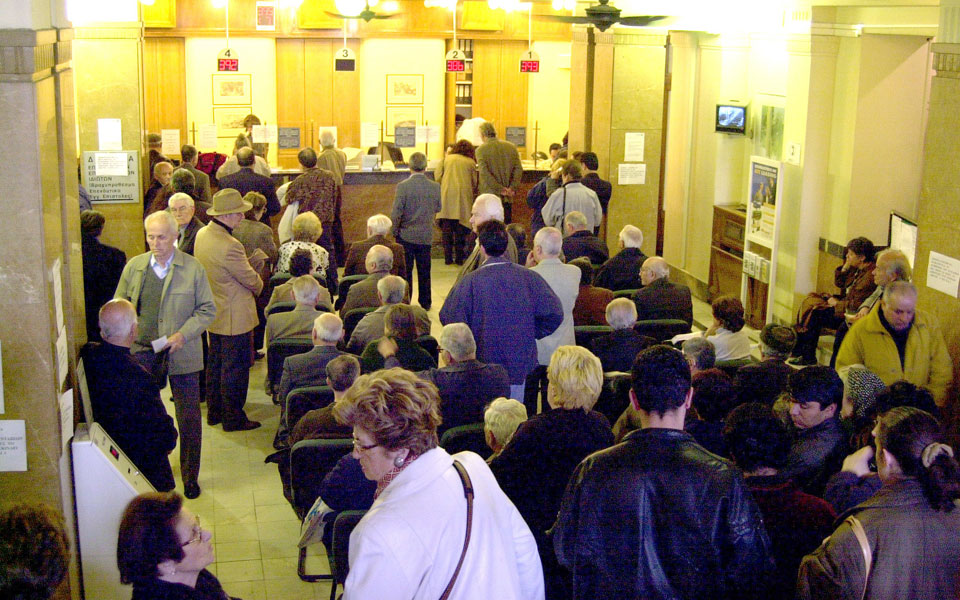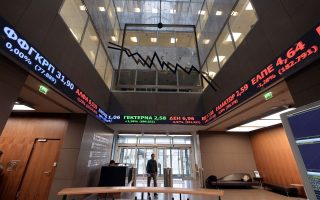Hedge funds merit part in NPL dealing

International lenders and Greek authorities appear to be at odds over how to best deal with the large stock of bad loans sitting in local banks’ books, just as the ECB is putting the final touches on the third recapitalization of the banking sector since 2013.
Making the recapitalization a success and addressing the bad loan problem go hand in hand, meaning that the two sides will have to find a solution that will help kickstart lending in the future and will not risk any more taxpayers’ money.
The option of selling corporate loans to foreign funds could be part of the solution, although the Greek side seems to reject this option.
We have always argued that Greek banks will have to be well overcapitalized to be able to cope with bad loans and be in a position to provide credit to the private sector in the next few years. This will also have to be done in order to address market concerns of yet another capital raising in the future. Effectively tackling the problem of loans in arrears for more than 90 days, the so called NPLs (non-performing loans), is important because it could lower the bill, attract more private money in the current recapitalization and avert the need for another injection of capital into the banks in a year or more.
It is reminded that the four major Greek banks received about 25 billion euros in bailout funds in exchange for shares in 2013, while private investors added 3 billion in the same year and an additional 8 billion euros or so in 2014 when the second round of recapitalization took place. As a result, the Hellenic Financial Stability Fund (HFSF) has ended up holding majority stakes in Alpha Bank, National and Piraeus, as well as a 35 percent stake in Eurobank.
Up to 25 billion euros have been allocated in the third bailout package for bank recapitalization, though local bank executives and government officials say less than 20 billion will be required. Less bailout money will be needed if private investors are convinced to join once again. Pundits admit the size of the bank recapitalization will play a significant role since the smaller the amount private investors have to cover, the better the chances they will participate.
It is generally accepted that the banks will remain in private hands and the top management will retain their positions if private investors cover the capital gap, emanating from the AQR (Asset Quality Review) and the baseline scenario of the stress tests after capital buffers – i.e. asset sales, bondholders’ bail-in – have been subtracted. The extra capital needs, stemming from the adverse scenario of the stress tests, are seen covered by HFSF in that case.
The HFSF could get in return a combination of common shares and contingent convertible bonds (CoCos) to maintain a material, minority stake in each bank if everything goes well. But CoCos are like a double-edged sword since they are expected to feature a high interest rate, meaning they could hurt the banks’ profitability. So, the analogy between common shares and CoCos should be carefully selected.
Undoubtedly, the return of the Greek economy to growth and the decrease in the unemployment rate are necessary for not adding any new NPLs to the existing huge stockpile. Analysts, bankers and government officials estimate that local banks are exposed to bad loans in excess of 100 billion euros, or 47 percent of total loans. Yet, even if everything goes well, the banks will not be able to play their traditional intermediary role and provide fresh credit to the economy unless they manage to reduce the NPL stockpile significantly. If they do not, for whatever reason, they will likely need another injection of capital in a year or two according to analysts.
At this time, the auditors of the lenders and the government appear to disagree on the conditions for offering legal protection from foreclosures to people who have taken mortgages to buy their first home. Bankers and analysts suspect some of the NPLs belong to strategic defaulters, that is people who are able to pay but take advantage of the situation not to. Therefore, it would be unfair to the rest of the borrowers who pay on time and the taxpayers who will be called upon to shoulder any losses the banks may incur by writing down these mortgages, if the conditions are relaxed to include strategic defaulters. A compromise on the property and income criteria is needed.
Despite all the talk in the local media, large foreign hedge funds in the business of buying loans to make a profit say they are not interested in Greek mortgages. However, their executives admit they are interested in corporate loans. Accused of offering very low prices to buy the loans, they counter that Greece is a buyers’ market and the price is right. Moreover, they go on to argue that they are in a better position to restructure many Greek companies that go down because they pay too much to service their debts, social security and taxes. They also say that they are better suited than banks to recover part of the loans because they have no ties to local businessmen. “Only us, the bad guys, can provide a solution to the corporate NPL nightmare,” one executive said.
Of course, vulture funds are not usually welcome and the executive above is exaggerating by claiming that they hold the only solution. However, this does not mean these funds should be excluded from dealing with the huge NPL stockpile. After all, if the country fails again, the current bank recap may not be the last one.
[Kathimerini English Edition]





